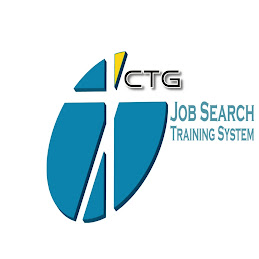- 41% felt their job search techniques were ineffective
- 41% felt their job search techniques were effective
- Over 70% felt they were not in control of their job search
- Over 75% felt they were not getting results from the create a resume, send a resume, wait for a response process
- 46% felt very confident with the effectiveness of their resume
It points out that most people feel that the create a resume, send a resume, wait for a response is the process that has to be followed regardless of how flawed and ineffective it is. We understand that. This process is decades old and not only do job seekers think this is how a job is found, but employers also believe it. If they did not they would not post jobs.
Or, maybe employers don't quite believe it. Over two-thirds of open positions are not advertised. That said, in talking with employers daily, they don't know how to make contact with potential employees either.
This makes for a very messy process of how employers and potential employees can get together doesn't it?
The great hockey player, Wayne Gretzky said, "Good hockey players skate to the puck. Great hockey players skate to where the puck is going." Since Wayne Gretzky holds or shares 61 NHL records, it is probably safe to assume that is good advice. How does this have anything to do with getting a job?
Picture what is said. You can see if you skate to the puck there is a good chance given how fast the puck travels that when you get there the puck is already somewhere else so you are continually chasing the puck. If you are skating to where the puck is going, sure you have to anticipate, but when you get there the chances are the puck will be there too.
Now picture yourself searching for a job. If you send your resume to a number of companies or respond to a number of job postings, your resume gets there with everyone else' resume and you are just one in the "bunch". The job may be filled or you may not get noticed. In today's hiring environment, even if you are qualified there are so many other resumes that yours may not be reviewed in any manner at all. That is in effect, skating to the puck.
Suppose instead, you conducted some serious research on companies you thought might be a fit for you and your experiences, skills, etc. You actually call into the company, engage in conversation with someone who is willing to speak with you and you find out a great deal about the companies you researched. In that effort you found several that were seeking someone with your background. You found out their culture is one that you would do well in. You eventually spoke to a hiring manager for your area of expertise (wouldn't it be great to speak to someone who is not trying to find a reason to not hire you?). You spoke with them and gained an interview. You prepared specifically for what that hiring manager was looking for in that position and they liked you so well they made you an offer you found very acceptable. Wouldn't that be more skating to where the puck is going?
In a very proactive manner you have not only found where the positions are you want but you have found out exactly what the hiring manager needs, not just what is in a job description or job posting. Those two documents possess less than 30 percent of what the job is really all about.
That is actually what a successful job search is all about:
- Being in charge of the search
- Knowing what to do
- Know who to contact
- Know who to speak to
- What to say
- How to present your credentials when appropriate
- How to get an interview
- How to interview successfully
- How to manage the process after the interview
- How to gain an offer
- What to do once an offer is extended
Not many people are doing that and that is one reason why there are still so many unemployed today. It is why many fear changing companies and why some do not advance within their current company because they do not know how to manage their career within a company.
Many individuals are returning to community colleges to gain more or different skills in hopes to become more employable. That is great, but if once the skills are gained there is a lack of knowing how to find the company and position where they can do the most good for the employer and the individual, how valuable are they?
The ironic thing about all this is that companies are in the most difficult situation they have faced in decades to find the talent they need in almost every level of their organization yet neither employers nor job seekers are able to find each other.
You may say to yourself that you cannot do what is listed above. Maybe not. The reason would be that you have not acquired the skills of how to conduct a proactive job search. Not many people know how. No one has been taught at the secondary level, collegiate level or post graduate. Most have been taught to write a resume and a cover letter and some basic research to find companies. Like many activities though, the skills can be learned. And, with a little practice you can become good at them.
Stop skating to where the puck is and start skating to where the puck is going. Go to www.CareerTalkGuys.com to learn more about the hiring environment and how to "skate to where the puck is going". For almost 50 years we have successfully helped those seeking a job to learn how.




